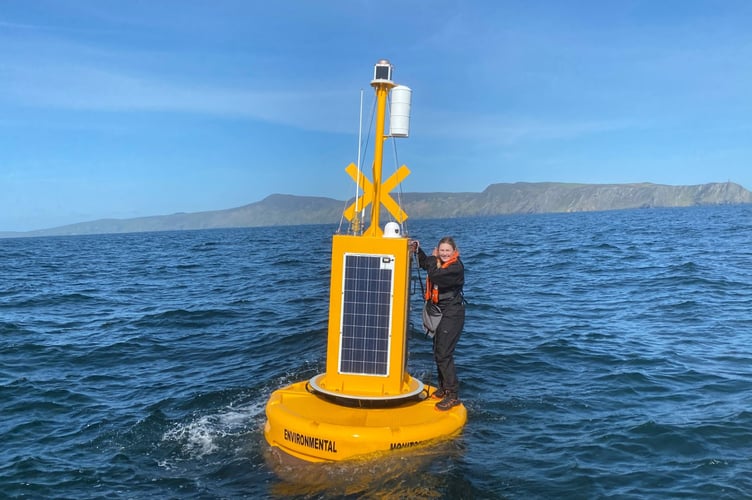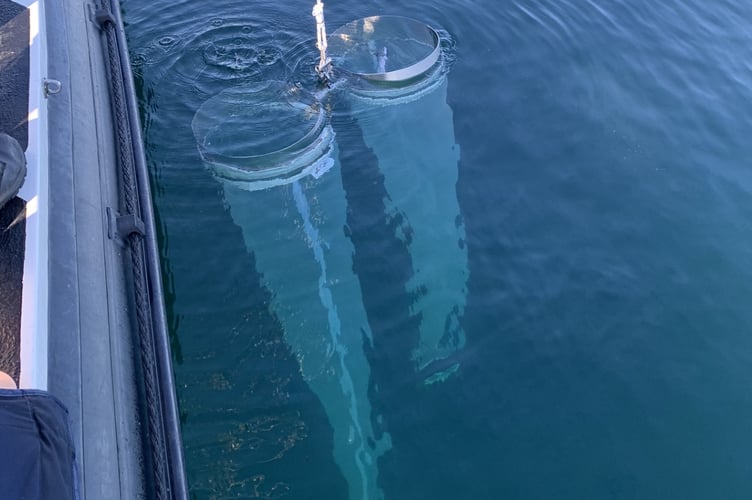DEFA’s marine monitoring officer Taylor Bridgens explains the importance of monitoring the health of our seas Marine monitoring acts like a health check-up for the ocean, constantly assessing vital signs like temperature, salinity, dissolved oxygen and much more. This ongoing process helps scientists understand and predict changes in our marine environment, providing crucial data to tackle challenges like climate change and biodiversity loss.
Marine monitoring on the Isle of Man has a very special history, dating back to 1904 it is one of the longest and most respected monitoring initiatives in Europe. Let’s dive in and explore why marine monitoring is so important.
Why marine monitoring matters
Marine monitoring involves the systematic observation and measurement of the physical, chemical, and biological parameters of the ocean. The ocean plays a pivotal role in regulating the Earth’s climate and is home to an incredible array of life, from the tiniest microscopic plankton to the largest whales.
Marine monitoring provides a comprehensive view of the health of marine ecosystems. By tracking parameters like water quality, nutrient levels, and plankton populations, scientists can detect early signs of ecosystem stress or decline, allowing for informed management and policy interventions.
Marine monitoring in the Isle of Man
Exactly one year ago, the Environmental Protection Unit in the Department of Environment, Food and Agriculture (DEFA) deployed a marine monitoring buoy roughly two nautical miles off the coast of Port Erin.
This buoy marks the location of the Cypris marine station, which has been monitored since 1954. The Cypris buoy keeps a watchful eye on the ocean’s vital signs, measuring temperature, salinity, conductivity, pH, turbidity, dissolved oxygen, chlorophyll, the partial pressure of carbon dioxide, and even wave height and direction.
All this data is collected continuously and made available in near real-time on the Isle of Man's marine monitoring website. The Cypris site is accessed bi-weekly (weather permitting) to collect water samples for nutrient, phytoplankton, and zooplankton analysis.
The unsung heroes of the sea
Plankton might be tiny, but they play a colossal role in the marine ecosystem, as they are the fundamental building block on which all life in our seas and oceans depend.
Phytoplankton, the plant-like plankton, are the foundation of the marine food web and produce about 50 per cent of the world's oxygen.
Monitoring phytoplankton involves collecting samples from various depths and analysing the different species and their abundance. This data helps scientists understand the health of the marine ecosystem and predict changes that could affect the entire food web.
Zooplankton, the animal-like counterparts, are also monitored using specialised equipment like bongo nets. Trends and changes in zooplankton density and distribution can provide early warnings for larger ecological shifts.
Our Ocean, Our Future
Marine monitoring in the Isle of Man doesn’t just benefit the local environment - it has global implications. The data collected aids scientists worldwide in understanding climate change impacts and developing strategies to combat them.
Additionally, it supports the productivity and resilience of the Isle of Man’s territorial sea, ensuring that this beautiful marine environment can thrive for generations to come.
In the words of renowned oceanographer Sylvia Earle: ‘With every drop of water you drink, every breath you take, you're connected to the sea. No matter where on earth you live.’
This statement is even more prevalent living in the Isle of Man where the sea makes up 87 per cent of our territorial area. Our oceans are so important not only to our Island life but all life on the plant and marine monitoring is the stethoscope we use to listen to its vital signs.






